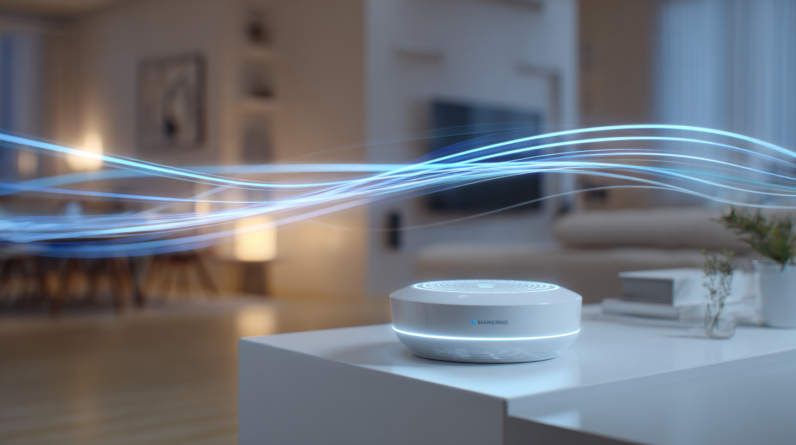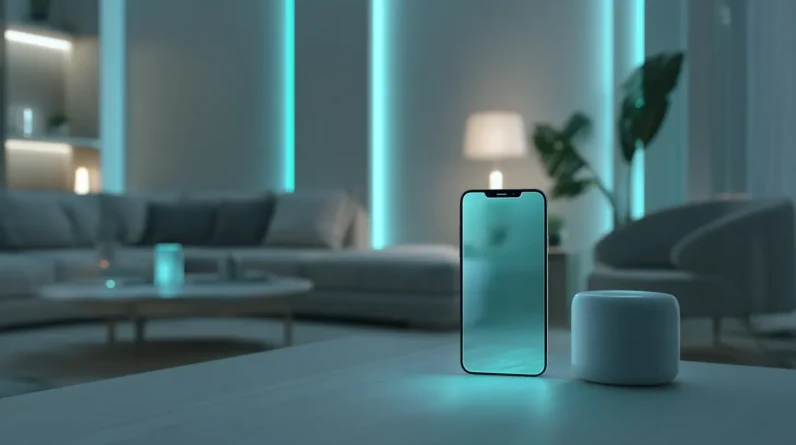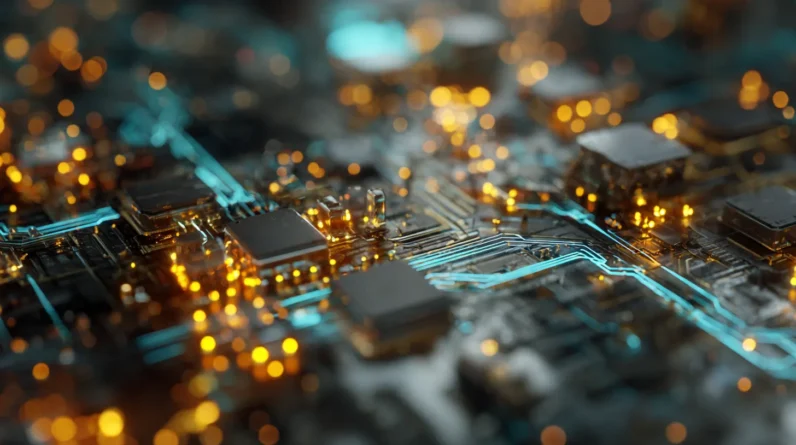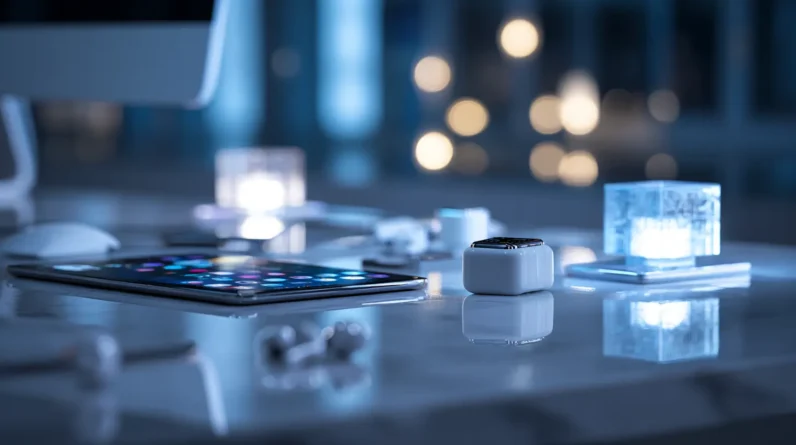
AI is revolutionizing smart devices, transforming them into intelligent companions that anticipate our needs. We’re seeing AI-powered personal assistants with advanced natural language processing, smart homes that learn and adapt to our habits, and predictive maintenance systems that prevent issues before they occur. Enhanced security features use machine learning to identify threats in real-time, while personalized user experiences tailor device interactions to individual preferences. From smartphones suggesting apps based on our behavior to voice assistants improving their understanding of context, AI is making our devices more intuitive and efficient. The future of smart devices promises even more seamless integration into our daily lives.
AI-Powered Personal Assistants
AI-powered personal assistants have revolutionized how we interact with our devices and manage our daily lives. These intelligent software agents, such as Siri, Alexa, and Google Assistant, leverage natural language processing and machine learning to understand and respond to our voice commands and queries. We’ve seen rapid advancements in their capabilities, from simple tasks like setting reminders to complex operations like controlling smart home devices and providing personalized recommendations.
As AI continues to evolve, we’re witnessing increased contextual awareness and predictive abilities in these assistants. They’re learning to anticipate our needs, offer proactive suggestions, and seamlessly integrate with various applications and services. The future holds even more promise, with AI assistants potentially becoming more emotionally intelligent, capable of handling multi-step tasks, and acting as true digital companions. We’re on the cusp of a new era in human-machine interaction, where AI assistants will play an increasingly central role in our daily routines.
Smart Home Automation
With the rise of AI and IoT technologies, smart home automation has transformed from a futuristic concept to an everyday reality. We’re witnessing a revolution in how we interact with our living spaces. AI-driven systems are now capable of learning our habits, anticipating our needs, and optimizing our home environments for comfort, efficiency, and security.
Key advancements in smart home automation include:
– Predictive climate control that adjusts temperature based on occupancy patterns and weather forecasts
– Intelligent lighting systems that adapt to natural light levels and user preferences
– AI-powered security systems that can distinguish between residents, guests, and potential intruders
As these technologies continue to evolve, we’re moving towards fully integrated smart homes where AI orchestrates a seamless ecosystem of connected devices. This shift promises to enhance our quality of life while greatly reducing energy consumption and improving home security.
Predictive Maintenance
Smart homes aren’t just about comfort and convenience; they’re also about efficiency and longevity. That’s where predictive maintenance comes in. By leveraging AI algorithms, we’re now able to anticipate potential issues with smart devices before they occur. These systems analyze data from sensors embedded in appliances, HVAC systems, and other smart home components to detect anomalies and patterns that might indicate impending failures.
We’re seeing a shift from reactive to proactive maintenance, reducing downtime and extending device lifespans. AI-driven predictive maintenance doesn’t just save us money; it also optimizes energy consumption and enhances overall system performance. As this technology evolves, we can expect even more sophisticated diagnostic capabilities, allowing for real-time adjustments and automated maintenance schedules. This advancement is vital for the scalability and sustainability of smart home ecosystems, paving the way for more intelligent and self-sufficient living spaces.
Enhanced Security Features
Security remains a paramount concern in the domain of smart devices, and AI is revolutionizing how we protect our digital ecosystems. We’re witnessing a shift towards more sophisticated, adaptive security measures that leverage machine learning algorithms to identify and neutralize threats in real-time. These AI-driven systems continuously evolve, learning from new attack patterns and adjusting defenses accordingly.
Key advancements in AI-enhanced security include:
– Behavioral biometrics for user authentication
– Anomaly detection in network traffic patterns
– Predictive threat modeling and prevention
We’re moving beyond traditional password-based systems to multi-layered security protocols that analyze user behavior, device interactions, and environmental factors. This holistic approach allows for more accurate threat detection while minimizing false positives. As AI continues to advance, we can expect even more robust security features that will fortify our smart devices against increasingly complex cyber threats.
Personalized User Experiences
AI’s impact extends far beyond security, reshaping how we interact with our devices on a daily basis. We’re witnessing a revolution in personalized user experiences, where AI algorithms learn our habits, preferences, and routines to tailor device functionality. Our smartphones now anticipate our needs, suggesting apps and actions based on time, location, and past behavior. Smart home systems adjust lighting, temperature, and music to match our moods and activities.
Voice assistants evolve to understand our speech patterns and contextual cues, providing more accurate and relevant responses. We’re seeing AI-driven interfaces that adapt to individual users, simplifying complex tasks and streamlining workflows. This level of personalization isn’t just about convenience; it’s about creating a seamless integration between technology and our daily lives, enhancing productivity and user satisfaction in unprecedented ways.
Conclusion
We’re witnessing a seismic shift in smart device capabilities, driven by AI. From Alexa’s increasingly nuanced interactions to Google Nest’s predictive energy management, AI is revolutionizing our daily tech experiences. As we look ahead, we’ll see even more seamless integration of AI in our devices. Imagine a smartphone that anticipates your needs, adjusting its interface and functionality based on your location, schedule, and even mood.
The future of smart devices is undeniably AI-centric, and we’re just scratching the surface.







